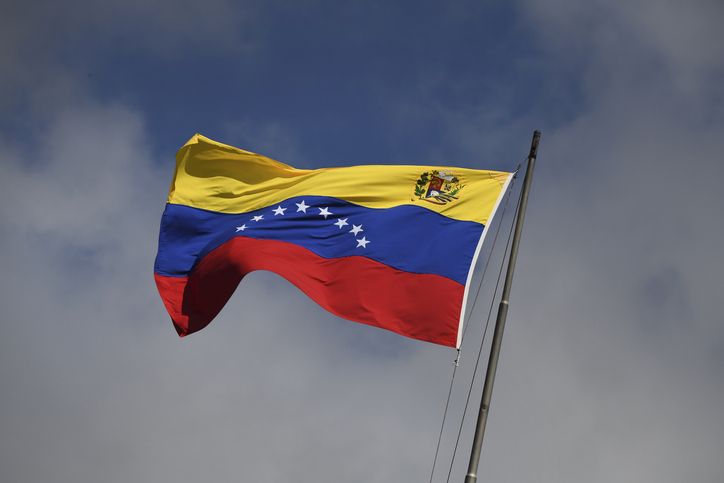As Venezuelan campaigners take to the streets demanding that President Nicolas Maduro concede defeat after a disputed election, digital rights campaigners say the government is using tech to target and intimidate its critics.
Officials have urged citizens to make online reports of “threats” from protesters, with rights expert Raisa Urribarri saying pro-government social channels widely sharing footage of arrests are also fuelling a “climate of terror”.
“The strategy of the Maduro government…is to instill terror in the population so they won’t go out to protest,” said Urribarri, an independent digital rights consultant and emeritus professor at the University of the Andes, Venezuela.
The government did not immediately reply to a request for comment.
The electoral authority last week declared that Maduro had won a third term with 51% of votes to extend a quarter-century of socialist rule, in an announcement that sparked widespread allegations of fraud.
The government has denounced protests as part of what it said was an attempted U.S.-backed coup.
Maduro said on Sunday that more than 2,000 people had been arrested in connection with “crimes” at the demonstrations and those found guilty would be given the “maximum punishment”.
Digital rights activists say the Venezuelan government has used technology tools to identify, intimidate and persecute political dissidents, journalists, and human rights defenders.
The government-backed VenApp – which is the only way for citizens to report issues with services like water and electricity supply – was updated after the elections with a page to report “guarimbas fascistas”.
The term literally means “fascist protests” and is commonly used by officials to refer to opposition protests.
The app has since been removed from the Apple and Google web stores, with users in Venezuela reporting it is still being shared through other channels, but the page to report protesters is not loading any more.
Nevertheless, the campaign has effectively facilitated “mass accusations in which Venezuelans tell on their neighbours on their online and offline activities,” said Andrés Azpúrua, the director at VE Sin Filtro, a watchdog project that documents internet shutdowns in the country.
The government also launched a digital campaign called Operation Tun Tun – meaning “Knock Knock” – encouraging people to report the name and ID number of protesters involved in “threats” via a hotline or online portals like Telegram, Instagram and TikTok.
“There are no human rights here. If a neighbour reports you, the police comes and blames you of any random thing, and off to jail you go,” said Gloria, a 60-year-old driver living in Caracas who requested to remain anonymous.
‘CLIMATE OF PERSECUTION’
Pressuring Venezuelans to report on each other is not a new strategy, activists said.
The previous Hugo Chávez government in 2008 approved the Ley Sapo (Snitch Law) to force citizens to provide information on others – though it was swiftly repealed after a fierce outcry.
In an open letter released this week, nearly 60 digital rights groups called on the government to stop using tech tools for the surveillance and repression of political dissidents.
“Harassing those who think differently is against freedom of speech and creates a climate of violence and persecution,” said Ángela Alarcón, campaigner at global digital rights nonprofit Access Now, which co-signed the letter.
VenApp has been a particular concern for rights activists.
When it first launched in 2022, Maduro promoted it as designed by “young entrepreneurs” though an investigation by fact-checking website Cazadores de Fake News found it was linked to developers in Panama that create apps for governments.
The app was criticised for failing to alert users when it accessed the camera, geolocation, email and messages of users.
U.S. democracy watchdog group Freedom House said it “sparked concern from civil society over its potential to further empower the government to manipulate online discussions and its excessive privacy permissions” in its 2022 report.
“We are living in a cyber dystopia where technology is being used against us,” said Luis Carlos Díaz, a cyberactivist and journalist who was detained and accused of “cybercrimes” in 2019, charges which rights groups said were politically motivated.
Access Now and VE Sin Filtro said they had heard reports of drones being used to record protests and police streets at night.
VE Sin Filtro reported that law enforcement officials are stopping people on the streets, searching their phones for evidence of political dissidence, and arresting them over the content they found.
Some people are deleting their media accounts, apps and private conversations in fear they may be found and used against them, multiple digital rights experts said.
“A lot of protesters that live in my building were recorded. No one has come knocking on their door yet, but their videos were distributed,” said Noemí, a 61-year-old teacher.
(Reuters)










